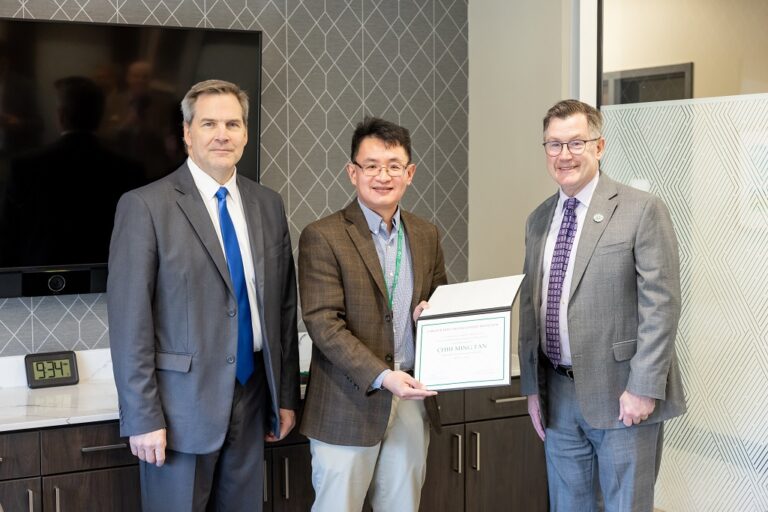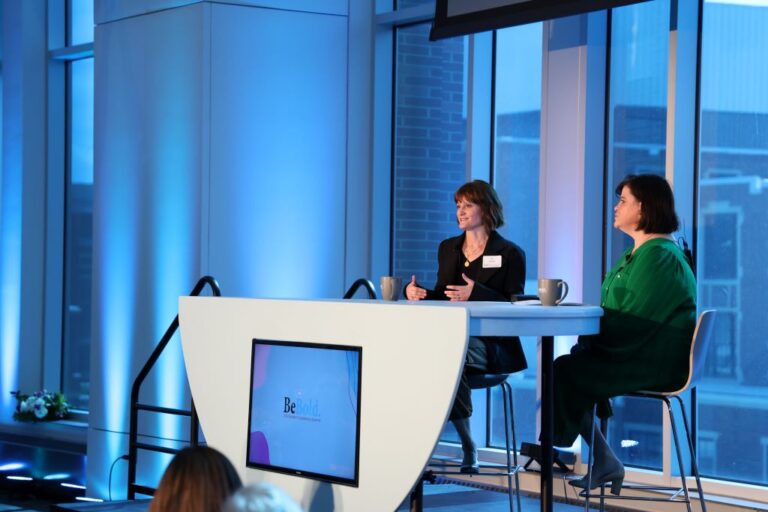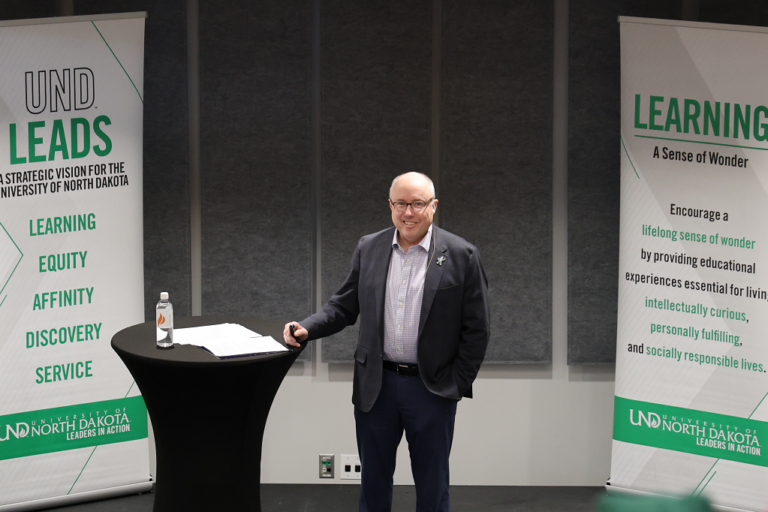New recycling guru talks trash
Michael Nord: Choosing sustainability strategies over the garbage can makes cents

Tossing that yogurt cup in the trash costs UND money.
“We save money by not sending trash to the landfill,” said Michael Nord, Manager of Sustainability and Energy in Facilities Management. “If we put recyclables in a trash bin, it costs money.”
It actually costs UND more to put recyclables in the landfill than it does to recycle them, Nord said.
That’s why he wants to raise awareness about the importance of recycling.
“It’s just dollars and sense: we don’t want to spend more than we have to,” Nord said. He added that last year, UND recycled 483 tons of waste, which avoided nearly $26,000 in landfill fees. “That really helps during a budget crunch.”
Recycle first
More items than you’d think can be recycled, said Nord.
Take that yogurt cup, for example. “Even if there’s a little residual yogurt in the container, it can be recycled,” he said. “So can squeezable yogurt, applesauce packs, and much more. Batteries and printer cartridges can all be recycled.”
Pop and water bottles have a better chance of being recycled with caps intact. Reports can be recycled if the plastic binding is removed. And tearing out the pages of hardcover books makes them recyclable. Paperbacks can go in the recycling bin as is.
Nord said that this year alone, recycling paper on campus has saved the equivalent of 945 trees. And recycling cardboard over the last year saved enough money to power 1.37 homes.
“People want to do the right thing,” Nord said. “Recycling saves tax dollars and keeps stuff out of the landfill.”
Passion for sustainability
Nord, who came to UND about a year ago from Case New Holland in Fargo and Nebraska, spends most of his time working to save energy on campus. He focuses on building automation, energy efficiency, and getting the most from heating and cooling dollars.
He has a construction management degree, and through the years has always gravitated to environmental compliance, safety, health and wellness.
Nord is passionate about recycling and sustainability. “You can touch and feel it. It’s real, and you can measure and see the fruits of your efforts almost immediately.”
Most of the campus population can connect to recycling, said Nord. “There’s a sense of community when you recycle.”
Nord recently conducted a campus waste management audit, and he’s always looking for ways to increase the recycling rate. “Sometimes we can move the bins so the recycling bin is easier to access than the trash,” he said. He’s also looking at campus challenges, such as competitions between residence halls.
And he’s done some dumpster diving. “The last week of the semester, we found couches, refrigerators and much more in the dumpsters,” he said. “I’d like to reach to nonprofits and find outlets for these items.”
He hopes to find volunteers to pick up large items, and perhaps set up an exchange so people who need the items would have access to them.
“Trash in bins costs us money,” he said.
If someone has a good idea for recycling, he’d like to hear it, Nord said. “We want to make it easy.”
Nord is also looking at what other campuses are doing, and firmly believes UND can increase its recycling rate.
“We’ll get there,” he said.


